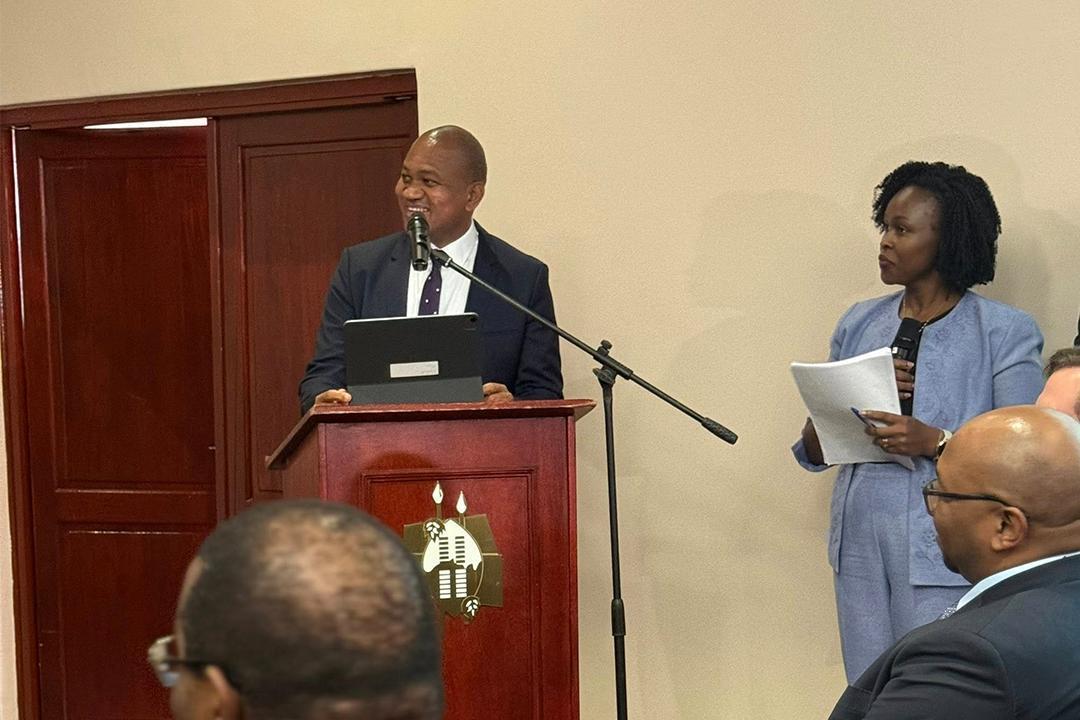Africa-Press – Eswatini. Business Eswatini (BE) announced its initiative to promote language training for Mozambicans and Emaswati in SiSwati, English, and Portuguese.
This initiative aims to eliminate barriers that hinder trade between the two nations. BE President Mvuselelo Fakudze made this statement on June 9, 2025 during a meeting with business professionals from Mozambique and Eswatini, alongside President Daniel Chapo of Mozambique.
Key Points from President Fakudze’s Address
– Importance of Language Training: President Fakudze highlighted the significance of language training in fostering deeper economic cooperation between Mozambique and Eswatini, facilitating better communication and understanding in business dealings.
– Historical Ties: He acknowledged the historical and commercial ties between the two countries, noting that trade flows already connect their economies, with Mozambican investments positively impacting Eswatini and vice versa.
– Commitment to Strengthening Bonds: Fakudze expressed BE’s commitment to strengthening the economic bonds between the two nations, particularly in trade facilitation and cross-border investment. He emphasized the need for collaboration among governments and businesses to unlock mutual benefits and enhance competitiveness.
Proposed Areas for Collaborative Action
President Fakudze brought forward several key areas where collaborative action could yield substantial improvements for businesses:
Border Security and Customs Information Exchange: He stressed the importance of increased border security and advocated for the exchange of customs information to streamline clearance processes, reduce delays, and lower costs for legitimate traders.
Logistics and Transport Costs: Addressing high logistics and transport costs was highlighted as a priority. He suggested reviewing fees, such as the $100 per truck fee, and increasing the utilization of rail infrastructure for cargo movement to and from critical sea ports like Maputo.
VAT Refund Mechanism: The implementation of a clear and efficient VAT refund mechanism for Eswatini businesses operating in Mozambique was proposed to improve cash flow and reduce administrative burdens.
Fostering Cultural and Language Exchange
Beyond infrastructure improvements, Fakudze emphasized the importance of fostering people-to-people connections. To this end, he proposed exploring a formal cultural and language exchange program between the two nations, which would include:
– Promoting Portuguese language training for Eswatini business professionals and students.
– Encouraging SiSwati and English language exposure for Mozambican counterparts.
– Facilitating exchanges for entrepreneurs, young professionals, and artists.
These initiatives would aim to break down barriers, build trust, and strengthen long-term economic and social bonds between Eswatini and Mozambique.
Conclusion
In closing, President Fakudze expressed the eagerness of the Eswatini business community to be proactive partners in enhancing cooperation. He urged the Mozambican government to consider these proposals favorably and emphasized the potential for transforming existing ties into a powerful engine for growth and shared prosperity for both nations.
For More News And Analysis About Eswatini Follow Africa-Press







